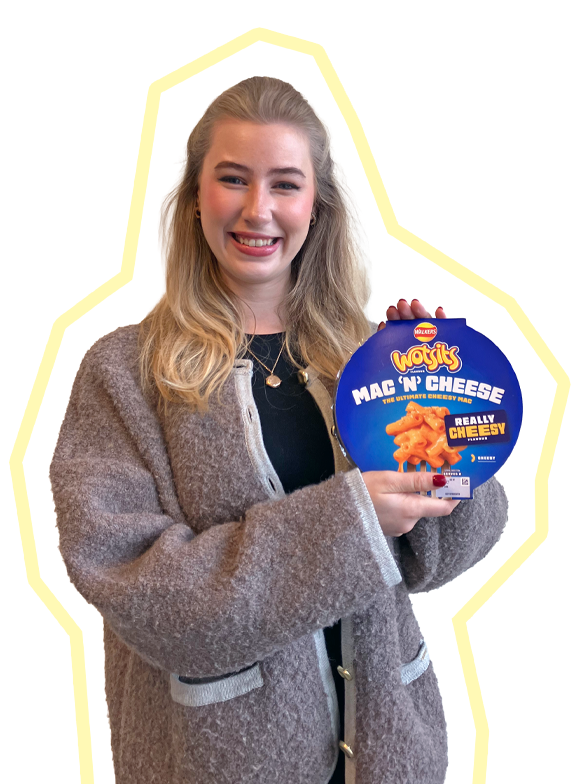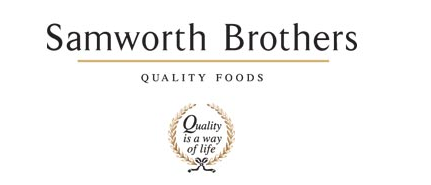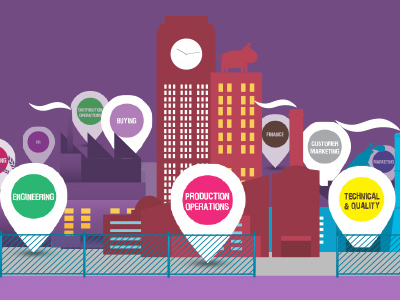

What does a Commercial Manager do?
A Commercial Manager in food manufacturing plays a key role in managing customer relationships and driving business performance within the fast-paced environment. Working closely with major retailers or brands, they are responsible for delivering sales and profit targets through effective management of pricing, promotions, forecasting, and new product launches. The role involves leading cross-functional collaboration across departments such as Development, Supply Chain, Finance, and Production to execute joint business plans and category strategies. With strong commercial acumen, analytical ability, and communication skills, a Commercial Manager aids the interpretation of market data to identify growth opportunities, challenges operational efficiency, and maintains accurate forecasts and cost models to support strategic decision-making.
After you qualified, did it take long to find a job?
After I qualified, it didn’t take long to find a job. As part of my apprenticeship, I was offered support in securing a role within Samworth Brothers upon completion. I was guaranteed an interview for any position I was interested in, and after interviewing for two roles, I was fortunate to be offered both around three months before finishing my apprenticeship. This meant that when I completed my training, I already had a job lined up - after enjoying a much-needed Christmas break!
How did you end up in this job?
I finished college during COVID and unfortunately didn’t get the grades to go to my dream university to study Food Science. However, I’d always been interested in doing an apprenticeship, so I declined my second choice and applied for a Technical Apprenticeship with Samworth Brothers. After securing the role, I moved to Leicester to complete a three-year apprenticeship, which included three one-year placements in technical and block release study at Sheffield Hallam University working towards a BSc in Professional Practice in Food Technology.
Towards the end of my apprenticeship, I realised that I didn’t want to continue in a purely technical role. Samworth were incredibly supportive and arranged work experience in other areas such as Category and Marketing. That experience confirmed my interest in more creative, commercial roles. I applied for both a Commercial Executive role and a Development Implant role with Costa but still working for Samworth Brothers and was offered both. I chose the Costa role as it was something unique and exciting.
After completing the one-year contract, I was offered a Commercial Executive position at Samworth Brothers on the Tesco Food to Go account, which I started in January 2025. A few months later, I saw a Commercial Manager role advertised within the business, working on the Tesco and One Stop accounts under a Senior Commercial Manager I’d worked with previously on Costa. I reached out to learn more, was encouraged to apply, and started in that role in June - which is where I’m currently working.
What advice would you give to someone thinking of pursuing this career?
My advice would be to learn as much as you can about different roles within the food industry. In a commercial career, you work closely with many other functions such as supply chain, production, finance, and development, so having a good understanding of how each area operates is a huge advantage. The more you understand, the better you can communicate, collaborate, and challenge decisions effectively. Knowledge really is power - it helps you make smarter choices and build credibility within the business.
What’s the best thing about your job?
The best thing about my job is getting to taste and review new foods during panels and learning about upcoming launches, consumer behaviours, and how wider social trends influence what people eat. I also love exploring new food concepts and seeing innovation in the market - it’s exciting to be part of an industry that’s always evolving and so closely linked to everyday life.
If you had the chance to do it all over again, what would you do the same / differently?
If I had the chance to do it all over again, I’d still choose to do my degree in Food Technology, even though I’ve ended up working in Commercial. It gave me a solid foundation in how products are made and the processes involved, as well as a real appreciation for the challenges that other functions face, especially in manufacturing. That understanding has been incredibly valuable in my current role, as it helps me communicate more effectively and make better-informed decisions.
Has your salary changed since then – if not do you see salary progression?
Since starting my apprenticeship four years ago, my salary has doubled, and there’s clear scope for continued progression as I develop in my career. The food industry, especially in commercial roles, offers great opportunities for growth and reward as you take on more responsibility and build experience.
Where do you see yourself in five years time?
In five years’ time, I hope to either be in - or be ready to step into - a Senior Commercial Manager role. I’d also be interested in exploring a buying role within a retailer or brand, as I really enjoy the commercial and strategic side of bringing products to market. Ultimately, I want to keep developing my skills, taking on more responsibility, and continuing to work in a role that combines creativity, strategy, and a love of food.
If you could give your 16 year old self some career advice, what would it be?
If I could give my 16-year-old self some career advice, I’d say: it’s never too early to think about your future and gain as much experience as possible - never say no to an opportunity! Choosing A-levels can feel overwhelming, but the key is to focus on what you enjoy and what you’re good at. Don’t worry if your interests don’t fit into a traditional career path - I never knew a commercial role in food existed, but I always knew I loved food and product trends. Once you know what you’re passionate about, start researching the types of jobs out there. Use tools like AI to explore detailed lists of careers linked to your skills or hobbies - even unusual roles or ones that match your lifestyle preferences, like not being stuck at a desk. Finally, ask yourself, “Is this something I’d be good at and enjoy?” and choose your subjects or qualifications with that in mind.
Did you buy something special with your first pay cheque?
It wasn’t my very first pay cheque, but after about three months of saving, I treated myself to a Dyson Airwrap. It was my first big purchase, and I still have it today!
 cy
cy





